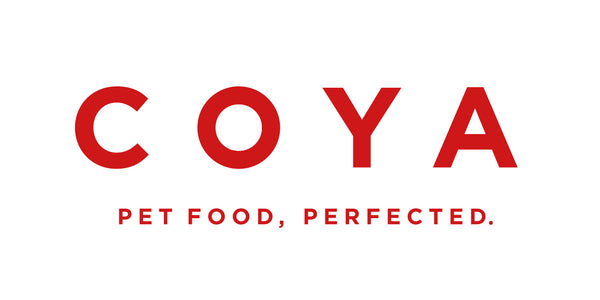
Protecting Your Pet at the Beach
Share
The UK coastline offers stunning beauty and endless opportunities for fun with our beloved canine companions. A frolic in the sand, a splash in the waves, it sounds idyllic, doesn't it? But beneath the surface of that seemingly harmless sand lie some surprising dangers for our four-legged friends. At COYA Pet, we're passionate about pet health and wellbeing, which is why we want to shed light on the less-talked-about risks of sand at the beach.
The Silent Threat: Sand Impaction in Dogs
One of the most serious dangers of sand at the coast is sand impaction, a condition where ingested sand builds up in your dog's intestines, causing a blockage. This can be incredibly painful and, if left untreated, life-threatening, often requiring emergency surgery.
How does sand impaction happen?
Dogs can ingest sand in several ways, often without their owners even realising:
- Playing fetch: Chasing and picking up sandy toys, especially wet ones, can lead to significant sand consumption.
- Digging: Many dogs love to dig at the beach, and as they do, they can accidentally swallow mouthfuls of sand.
- Licking paws and fur: After a run on the beach, sand can cling to their paws and coat. When they groom themselves, they'll ingest it.
- Drinking sandy seawater: While we advise against drinking seawater due to its high salt content (which can also cause issues like hypernatremia), sandy water further increases the risk of sand ingestion.
Signs of Sand Impaction to Watch For:
Symptoms of sand impaction can sometimes take a few days to appear, so it's crucial to monitor your dog closely after a beach trip. Look out for:
- Restlessness, pacing, or general discomfort
- Loss of appetite
- Vomiting (which may contain sand)
- Diarrhoea or straining to defecate
- A swollen or painful abdomen
- Lethargy
If you notice any of these signs, contact your vet immediately. Early intervention is key.
Beyond Impaction: Other Sand-Related Hazards
While impaction is a major concern, sand poses other potential problems:
- Irritation and Infections: Sand can get into your dog's eyes, ears, and paw pads, causing irritation. It can also lead to skin irritations and even infections if not thoroughly rinsed off.
- Dental Wear: Repeatedly picking up sandy toys can wear down your dog's teeth over time, leading to dental problems.
- Hidden Dangers: Sharp shells, broken glass, or other debris can be hidden beneath the sand's surface, posing a risk of cuts and injuries to your dog's paws. Always scan the area your dog will be playing in.
Responsible Beach Trips: Minimising the Risks
Don't let these dangers deter you from enjoying the beach with your dog! With a few precautions, you can keep them safe:
- Bring Plenty of Fresh Water: Always provide ample fresh water for your dog to drink. This helps them stay hydrated and reduces the temptation to drink salty, sandy seawater.
- Supervise Playtime: Keep a close eye on your dog, especially if they're prone to digging or picking up objects. Consider using smooth toys like rubber discs instead of fuzzy tennis balls that easily collect sand.
- Rinse Thoroughly: After your beach visit, thoroughly rinse your dog with fresh water. Pay particular attention to their paws, coat, and any areas where sand might accumulate. This prevents ingestion during grooming and reduces skin irritation.
- Avoid Peak Heat: Visit the beach during cooler parts of the day to prevent overheating, which can exacerbate dehydration and other issues.
- Know Your Dog: Understand your dog's habits and tendencies. If they're a known sand-eater or vigorous digger, take extra precautions.
At COYA Pet, we believe in providing your dog with the best possible nutrition to support their overall health, which in turn helps them recover from any minor ailments and maintain a strong immune system. Explore our range of healthy, delicious freeze-dried raw dog food to ensure your canine companion is always at their best, ready for any adventure – even a safe one at the beach!
By being aware of the potential dangers and taking simple preventative measures, you can ensure your dog enjoys a safe and happy day out on the UK's beautiful sandy beaches.

